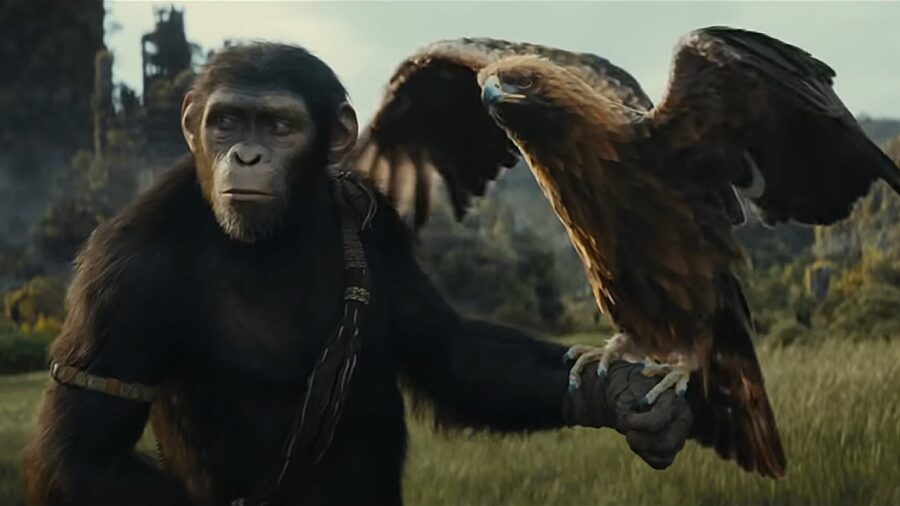Hulu Sci-Fi Epic Blockbuster Begins Apocalyptic Trilogy

The recently released Deadpool & Wolverine has a rather interesting scene that parodies 20th Century Fox and its acquisition by Disney, which effectively gave the House of Mouse rights to stream 20th Century Fox’s IPs on its streaming platform. That is why Hulu is now housing an epic blockbuster movie that begins an apocalyptic trilogy—of course; we’re referring to 2011’s Rise of the Planet of the Apes.
The Rebirth Of A Franchise

Rise of the Planet of the Apes is the reboot of the original Planet of the Apes movie series that began with 1968’s commercially and critically successful adaptation of the same-name novel by Pierre Boulle. The movie follows the story of Ceasar, a super-intelligent chimpanzee who has been exposed to an experimental drug for treating Alzheimer’s disease while in utero.
After the project is deemed a failure, Ceasar—still an infant at that point—is allowed to free-roam the nearby forest and becomes highly intelligent and able to communicate with humans using sign language.
Hail Ceasar

He’s eventually captured and taken to a shelter, where he eventually asserts dominance, manages to escape, and steals the next iteration of the experimental drug. He then uses said drug to enhance the intelligence of other apes and leads them to their freedom in a redwood forest. By the time Rise of the Planet of the Apes ends, Ceasar also reveals that he’s capable of speech, while the new iteration of the experimental drug evolves into a deadly virus, leading to a global pandemic.
A Massive Hit

Rise of the Planet of the Apes was a massive success and a well-executed reboot of a previously established and rather popular franchise. The 2011 movie was praised for its director’s style, impressive special effects, and mesmerizing performance by Andy Serkis as Ceasar. It did really well with the critics and has won 21 different awards from a total of 43 nominations. That really says something about its quality.
Every Film Expanded The World

Financially, Rise of the Planet of the Apes did more than okay; it earned just shy of $482 million against a $93 million budget. Apart from that, it actually breathed freshness into an already established and somewhat stale franchise, giving birth to subsequent releases, including 2014’s Dawn of the Planet of the Apes, 2017’s War for the Planet of the Apes, and 2024’s Kingdom of the Planet of the Apes. Of course, each of the subsequent movies builds upon the previous one, leading up to 300 years in the future.
Taking The Franchise Into The Future

Dawn of the Planet of the Apes takes place ten years following the events of Rise of the Planet of the Apes, with a group of human survivors struggling to stay alive in the wake of a deadly pandemic, and War for the Planet of the Apes takes place five years after that, with the conflict between apes and humans escalating into a full war. The most recent movie, Kingdom of the Planet of the Apes, takes place more than 300 years after the events of Rise of the Planet of the Apes, with apes forming clans and societies and humans becoming caveman-esque and unable to speak.
For those interested in watching Rise of the Planet of the Apes, the movie is currently available on Hulu.












